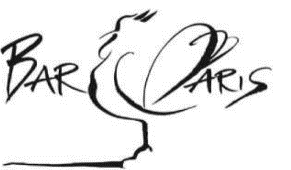UK
Court of Appeal confirms Tesco's Clubcard Prices logo infringes Lidl's house mark
The Court of Appeal has upheld the High Court's finding of trade mark infringement, passing off and bad faith but overturned the finding of copyright infringement in this important case. It means Tesco will have to stop using its Clubcard Prices loyalty scheme logo unless permission is granted for a further appeal to the Supreme Court.
The decision emphasises how difficult it is to over turn a first instance ruling in the UK and the important role evidence can sometimes play in trade mark disputes. It also clarifies a number of areas of law including in relation to reputation-based claims, bad faith, and copyright subsistence and infringement. More here.
Court of Appeal confirms Aldi's light up gin bottle infringes M&S's registered designs
The Court of Appeal has dismissed Aldi's appeal against a finding that it had infringed various registered designs for a light up festive gin bottle owned by M&S. The case illustrates the potential benefits of having an 'arsenal' of IP rights (including registered trade marks and designs) in place for products and packaging.
The case is also significant in that it clarifies a number of areas of design law that were somewhat unclear. In particular, the Court held that products manufactured to a registered design and product indications can be used to help resolve any ambiguities as to what is shown in a design image. In addition, designs disclosed by the design owner during the 12-month grace period are to be excluded when assessing infringement (as well as validity) of the registered design. However, only disclosures of the registered design and any designs which do not produce a different overall impression are so excluded. More here.
Court of Appeal rules on fiduciary duties, equity, and trade marks
In Quantum Advisory v Quantum Actuarial, the Court of Appeal has ruled on the ownership and permission to use various QUANTUM ADVISORY (and Q) marks under a Services Agreement (SA) between the claimant and defendant. The SA provided that the defendant would service the existing clients of the claimant (at cost) and the defendant would develop new business of its own (for profit) – all under the Quantum name (which had been owned by a predecessor of the claimant).
The decision emphasises the potential pitfalls of inadvertently creating a fiduciary relationship – here, the SA created such a relationship between the claimant (as principal) and the defendant (as fiduciary/agent). It meant that the claimant (not the defendant) owned the trade marks in question, including the Q mark (despite the fact that it had been procured by the defendant) and that the defendant would have to stop using those marks when the SA came to an end. Had the SA provided otherwise then the position would have been different, but it was largely silent on these issues. The case also illustrates that the law of equity can add to rights and obligations under the Trade Marks Act 1994.
High Court dismisses Thatcher's lookalike case against Aldi
Aldi has successfully defended another lookalike case, this time involving cider. While the M&S case mentioned above was based on design rights; this one, brought by the makers of Thatcher's Cider, was based on trade mark rights. There are some useful lessons for brand owners to learn from Judge Melissa Clarke's judgment. More here.
High Court considers similarity of services
In Extreme E v Extreme Networks, the High Court has considered similarity of services in an appeal from a decision of the UK IP Office hearing officer. The court held that the organisation of various activities (including sporting and cultural events, exhibitions, races, sports events, competitions, and award and gala ceremonies) (on the one hand) is not similar to "booking of seating for shows" (on the other hand).
While organising the former activities might involve selling seats for them that is not the same as selling seats for third party activities/events. (Just as advertising one's own goods is not the same as advertising for others.) This important point should be borne in mind when drafting trade mark specifications and when judging whether two specifications are similar.
New Civil Procedure Rule Committee's open justice consultation on access to court documents by non-parties
The Civil Procedure Rule Committee has published a consultation on proposed amendments to CPR Rule 5.4C concerning access to documents by non-parties. If the amendments are accepted, it will mean that witness statements, expert reports and skeleton arguments are made public at a much earlier stage of proceedings than at present. The consultation closes on 8 April 2024.
EU
ECJ says that priority for a design application cannot be based on a patent application
In EUIPO v KaiKai, the ECJ has ruled that a design application cannot claim priority from an earlier patent application. While the Paris Convention provides that a utility model application can give rise to a right of priority for a design application in the period fixed for designs (ie six months), the same does not apply to patent applications.
EU General Court upholds invalidity of AMAZONIAN GIN COMPANY EUTM registration
The General Court has held that a word-only EUTM for AMAZONIAN GIN COMPANY, registered for gin and alcoholic beverages based on gin, is invalid as the word ‘amazonian’ describes the geographical origin of the goods at issue and their quality. More on this next month.
Meanwhile, in Vía Atlántica Adegas v EUIPO, the General Court has held that the words atlántica and atlântico are not descriptive of a characteristic of wine. Although multiple wine-producing regions were situated along the Atlantic coast, it included thousands of kilometres of coastline crossing multiple EU member states and was therefore too broad a geographical area to be descriptive.
EU General Court confirms Puma shoe RCD invalid due to prior disclosure by Rihanna on Instagram
In Puma v EUIPO, the General Court has upheld a decision to declare a Registered Community Design (RCD) for sports shoes invalid because the singer Rihanna had been pictured on Instagram wearing shoes made to the design more than 12 months before the RCD application was filed (ie outside of the 12-month grace period).
The picture had garnered considerable interest (being posted when Rihanna was announced as the new creative director for Puma), had been widely shared on social media and disclosed all elements of the design. It would therefore have become known to the relevant circles in the trade. The decision illustrates the importance of filing RCD applications well within the 12-month grace period and being careful what is posted on social media.
EU General Court says repeat national filings to extend the priority period constitutes bad faith and abuse of rights
In Athlet v EUIPO, the General Court has ruled that repeat national filings in order to try to circumvent the priority period can constitute bad faith and an abuse of rights. The applicant had filed several national trade mark applications for the same mark in Austria between 2007 and 2010 without paying the fees (as is possible under Austrian law). In 2010, it then filed an EUTM application for the same mark claiming priority from the 2010 Austrian application. That EUTM application was deemed to have been filed in bad faith and so the resulting registration was invalid. The decision was recently cited by the Court of Appeal in the Lidl v Tesco case (mentioned above) despite being a post-Brexit decision of the General Court indicating that the UK courts still have "one eye" on EU jurisprudence.
EU General Court says BAR PARIS not confusingly similar to PARIS BAR
The General Court has held that an EUTM application for the mark BAR PARIS is not confusingly similar to an earlier German registration for PARIS BAR (both depicted below and covering services in Class 43).
The case illustrates the (sometimes) narrow protection granted to descriptive/weakly distinctive marks, the Court holding that the phonetic and conceptual similarities between the marks was based on the weak word elements, so that the figurative elements should be given greater weight.
EU General Court upholds finding of no link in Puma machine tools case
In Puma v EUIPO, the General Court has upheld a finding that the average consumer would not make a link (sufficient for a reputation-based trade mark claim) between the mark "bertrand puma la griffe boulangère" (plus feline image) for various goods in classes 7, 9 and 11 (machine tools etc) and the earlier well-known Puma mark, registered in class 25 (clothing etc).
The average consumer would not link the marks given the radically different sectors concerned. This was despite the strength of the earlier mark’s reputation and the overall similarity of the marks. This meant that Puma's reputation-based claim failed. The decision follows a number of other recent cases in which no link was found (eg the BIMBO bike and APIRETAL cases but contrast the recent REGINA case) and emphasises that brand owners will need to submit strong arguments (and potentially also evidence) of a link in appropriate cases.
EU General Court says polaroid figurative EUTM is invalid for lack of distinctiveness
In Polaroid v EUIPO, the General Court has held that a figurative EUTM for the well-known shape of a Polaroid photo (depicted below) lacks distinctive character for various goods/services in Classes 9, 11, 25 and 40 (including photography related goods/services). The registration was therefore invalid. Perhaps unsurprisingly, the Court found that the sign would be perceived as a decorative element due to its simplicity, consisting of basic geometric shapes. We wait to see whether Polaroid files any evidence of acquired distinctiveness through use.

EU Parliament adopts new Directive and Regulation on designs
The EU Parliament has formally adopted the new Directive and Regulation on the legal protection of designs. No amendments were introduced following the provisional trialogue agreements reached in December last year. The EU Council is also expected to formally adopt the legislation shortly. They will then be published in the Official Journal and will enter into force 20 days later. The Regulation applies after four months, whereas member states have 36 months to transpose the Directive. More on this next month – meanwhile, find an earlier summary of the changes here.
To access our quick guide to marks contrary to public policy and accepted principles of morality, see here.







